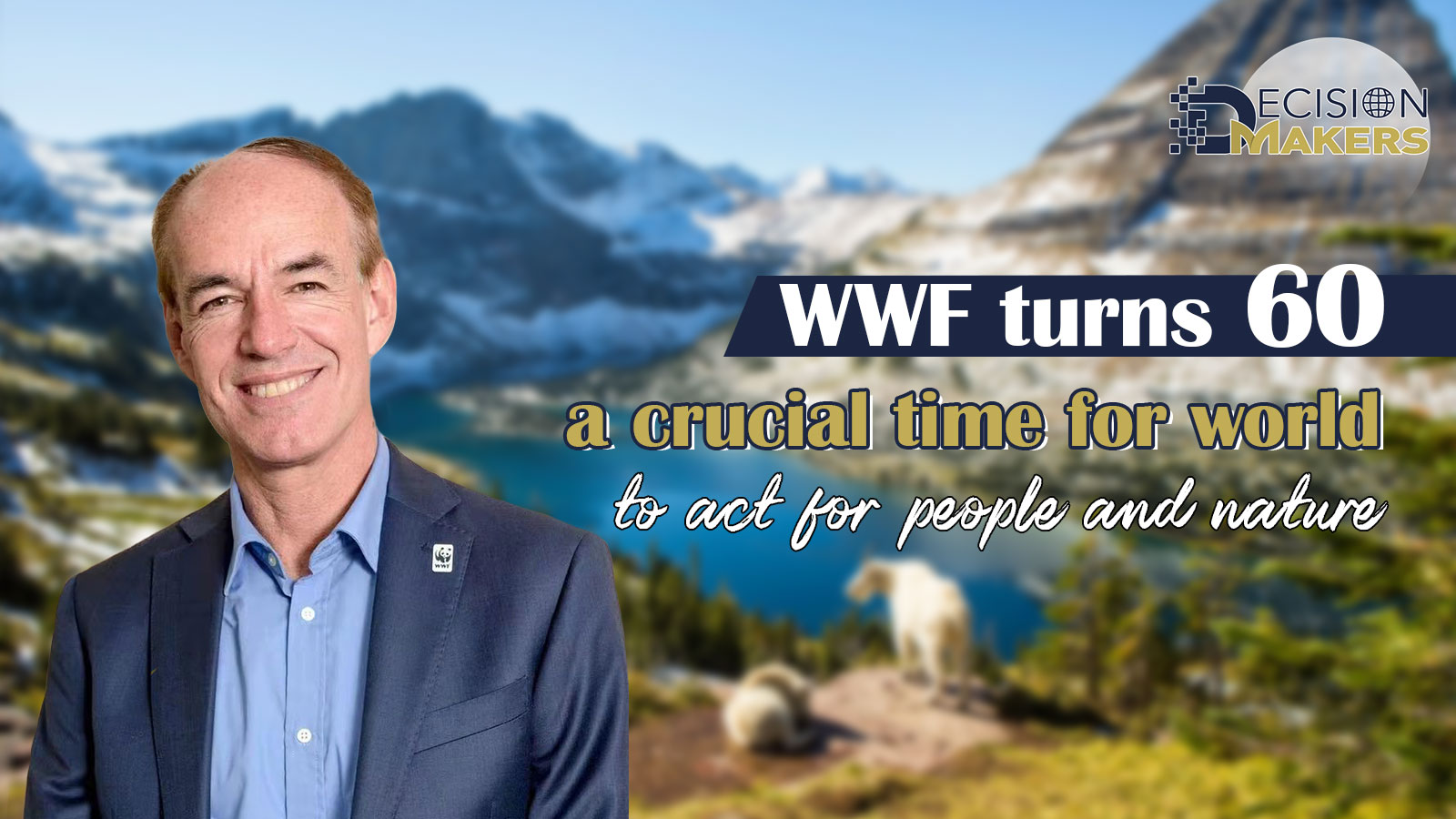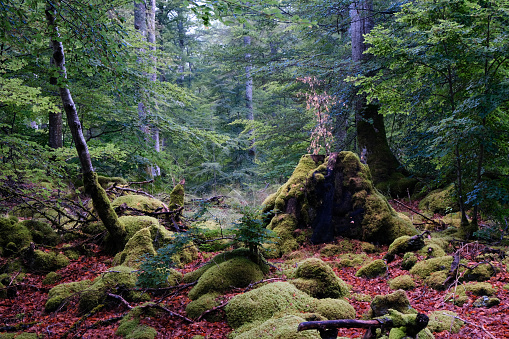
Editor's note: Decision Makers is a global platform for decision makers to share their insights on events shaping today's world. Marco Lambertini is Director General of WWF International. The article reflects the author's opinions and not necessarily the views of CGTN.
Sixty years ago humanity started "The Great Acceleration," a period when the global consumption of natural resources – energy, water, food on land and in the ocean, timber and minerals – started to increase exponentially with equally accelerating impacts on the Earth's systems. It is perhaps no coincidence it was exactly at that time when a group of visionary and passionate leaders and environmentalists from Europe, Africa and America felt the natural world needed a global advocate. On April 29, 1961, World Wildlife Fund (WWF) was born.
From those origins, WWF has grown to embrace a systemic approach to nature conservation and sustainable development, focusing on the conservation at scale of wildlife, forests, ocean and freshwater systems by tackling the main drivers of nature loss such as energy and food production, and by transforming markets, greening finance and improving the governance of natural resources to enable truly sustainable development. In a complex and interconnected society and economy, this is the only way we can halt climate change and reverse and restore the loss of nature.
There have been many tangible achievements to be proud of in the past 60 years. Guided by science, WWF pioneered some of the most innovative actions ever taken on nature conservation, the impacts of which are still being felt today: from supporting world famous protected areas like Galapagos in Ecuador and Volcanoes National Parks in Rwanda – both a crucial life line for endangered wildlife as well as engines for local economies – to the protection of iconic species like pandas, tigers, rhinos and elephants as well as those that are less known and cryptic, like the lemurs in Madagascar or river dolphins in Asia and Latin America.
In 1980s, a mere one percent of the Earth's surface was under protection, and almost all of that was on land. Today, that has risen to over 15 percent of land and eight percent of the ocean, with plans to reach 30 percent by 2030 through action by government, indigenous peoples and local communities and the private sector.
WWF has also been at the forefront of innovation, from launching the world's first eco-labels for food and consumer products, developing the concept of debt swaps for nature and supporting some of the first community-led conservancies in Namibia, to successfully advocating for the adoption of ground-breaking global agreements on wetlands, wildlife trade, biodiversity and climate.

Despite this progress, our mission has only grown in urgency over the last six decades. Today we are still witnessing a catastrophic collapse in our planet's biodiversity and ecosystems. We've already lost nearly half of the world's forests, coral reefs and mangroves, and two-thirds of all natural wetlands. And we've seen a two-thirds crash in wildlife populations on average in the last 50 years, insect pollinators are in free fall and fish stocks in the ocean as well as rivers and lakes are increasingly overfished, threatening our food security, nutrition and the livelihoods of hundreds of millions of people.
This is perhaps the biggest difference from our early days. Sixty years on, more and more people understand our dependence on nature and the devastating consequences that society is beginning to suffer, from climate change and nature loss. Today nature conservation is not only a moral issue; it is also an economic, social, human health, as well as equity issue, as the most vulnerable communities are affected the hardest by failing natural systems.
Our broken relationship with nature is putting at risk the climate, as well as our food, freshwater and wellbeing. Nature loss also threatens our health. The ongoing COVID-19 pandemic is the latest reminder of the tragic price humanity is paying for pushing the planet's natural systems that support life, balance and harmony on Earth to the edge.
This decade can be a turning point in how we tackle society's greatest challenges such as pandemics, hunger, poverty and inequality, while respecting the environment as the foundation for any durable socio-economic progress.
There is hope and momentum is building. Today environmental issues are higher up the international political agenda than ever before. Large parts of the private sector are driving market transformation towards sustainable production; consumers are embracing responsible consumption and political will is growing around the need to drive ambition and systemic change.
With our planet more than ever under threat, while people are demanding for change like never before, in the next 10 years collectively we must and can achieve more for the planet than we have in the last 60 years.
We'll need to see faster green transformative change in all sectors, particularly food, energy and infrastructure, and stronger governance, protection and restoration of wild lands, rivers and oceans. Humanity's compass is set: we must develop a carbon neutral economy by 2050 and a nature positive society by 2030. To achieve this we must bring together governments, businesses, financial institutions, consumers and communities.
The conservation wins of the last 60 years and today's awakening of society are proof that by working together, a better future is possible. Science has never been clearer and awareness has never been greater. Our society is ready for change and we are ready too. Together we can.
(If you want to contribute and have specific expertise, please contact us at opinions@cgtn.com.)

